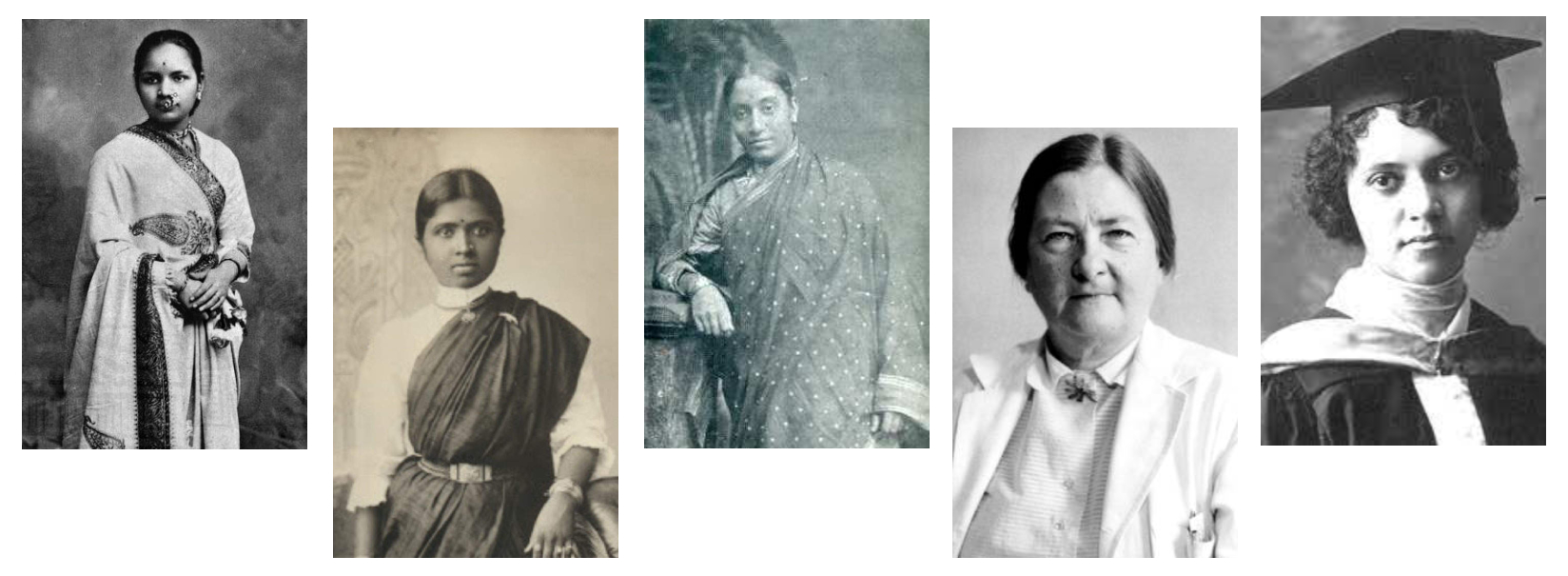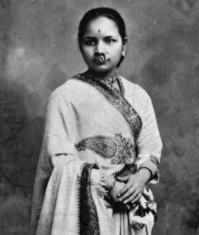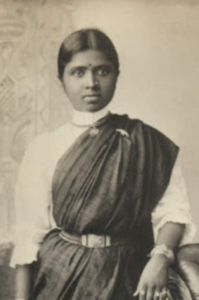Forgotten Women of Healthcare

Parents of today have no hesitation in encouraging their daughters to pursue a career in medicine. The honour of having “a doctor in the family” is unparalleled. But this was not always the case.
Rewind to the years before independence when it was a different scenario altogether, where practices of child marriage reigned supreme and educating girls was frowned upon. Girls were not even allowed to complete schooling much less dream of a career in medicine. Yet, this did not stop certain fearless women from fighting against all odds to pursue their dreams. These women paved the way for other women to break the shackles that society placed on them; they showed them how to stand up to patriarchy and questioned the demeaning practices which were being followed for centuries.
It took courage, conviction and a lot of struggle, but they won and slowly but surely the thought process behind girls’ education began to change. These pioneers need to be celebrated and their inspiring stories told to every little boy and girl.
This article is a token of gratitude to these forgotten women without whom we as a society would not be where we are today. There is of course a long way to go, but we will always be thankful to these women (and all the women who don’t find a mention in our history books) for getting the wheels moving.
Anandibhai Joshi

- India’s first lady physician, Anandibhai Joshi was married at the tender age of 9 years.
- She had her first child at the age of 14 but unfortunately, the baby a little over a week after birth, passed away.
- This traumatic incident affected Anandibhai and she decided to pursue medicine. Her husband was extremely supportive and did all he could to aid her career.
- Anandibhai went on to study medicine in America and completed her master’s degree in 1886. The Queen of England herself was delighted at this accomplishment and sent her good wishes.
- Heartbreakingly, Anandibhai lost her life to tuberculosis at the age of 22 but what she did manage to do in her short life was (and continues to be) an inspiration to many.
Muthulakshmi Reddy
 Born in Pudukottai in the year 1886, Muthulakshmi Reddy rose to garner national acclaim for a number of her achievements.
Born in Pudukottai in the year 1886, Muthulakshmi Reddy rose to garner national acclaim for a number of her achievements.- Born of an inter caste marriage, Muthulakshmi’s father played a huge role during her childhood years by supporting her academic aspirations.
- At a time when girls couldn’t continue education after menarche, her father hired tutors to continue her studies. She proved to be a brilliant student and her tutors went beyond their role and taught her more than what they were paid for.
- There was no stopping Muthulakshmi who entered the prestigious Madras Medical College and completed the course with flying colours.
- Muthulakshmi was a born feminist and spoke vociferously for women’s rights. She brought to focus many issues like women’s education, voting rights and widow remarriage to name just a few. Her younger sister succumbing to cancer motivated her to train in cancer treatment and she went on to establish the iconic Adyar Cancer Institute in Chennai.
Rukhmabhai Raut

- Married at 11 years, Rukhmabhai refused to live with her 19-year-old husband after marriage. This led to a court case which expectedly did not end in her favour.
- Strong willed Rukhmabhai who had the support of her stepfather, did not succumb and declared she would rather endure a jail term than live with her husband.
- She wrote to Queen Victoria about her plight who put an end to the farce by dissolving the court order and setting Rukhmabhai free.
- She went on to study medicine at the London School of Medicine and played an active role in many a social cause for women.
- The Age of Consent Act, passed in 1891, which raised the age of consent for girls from 10 years to 12 years was one which Rukhmabhai fiercely supported.
While these remarkable women mentioned above are all Indians, there are many foreign lady healthcare professionals too who in-spite of their contributions to healthcare, remain unheard of.
Dorothy Andersen
 Dorothy Andersen was the first to identify and diagnose the life-threatening condition of cystic fibrosis.
Dorothy Andersen was the first to identify and diagnose the life-threatening condition of cystic fibrosis.- She too had her share of challenges and was refused surgical residency on account of being a woman.
- She went on to become a pathologist and subsequently obtained her doctorate too. Extremely knowledgeable about cardiac conditions in children, she helped out many surgeons who were then just starting to perform open heart surgeries.
Alice Ball

- Alice Ball was not a doctor but a chemist who contributed immensely to leprosy treatment.
- She was the first African American to earn a master’s degree and went on to work as a professor in the University of Hawaii.
- She was involved in research on leprosy treatment and her research formed the foundation for getting a cure to leprosy.
- Unfortunately, her untimely death at the age of 24 in 1916, saw her work being credited to her successor who carried on with what she had left behind. It was only in the 1970s, years after her passing away, that her contribution came to light.
Giving Women Their Due
These are just a few of the many women whose contributions remain unsung. There are countless more out there who will unfortunately remain hidden and in due course forgotten. Why are women’s contributions ignored? Why are they not given the credit they rightfully deserve?
It could be because women having a career was unheard of in those times. It was difficult to digest the fact that a woman had not only entered the field of science but had also succeeded. This led to a refusal to acknowledge their contributions. Another reason could be that women invariably needed a male’s moral support in the workplace to achieve their objectives. As a result, they were often pushed to the position of assistants or subordinates.
While times are changing, there is still much that needs to be done. Women’s achievements need to be acknowledged and shared, to inspire other women who are going through hardships, to let them know that they are not alone and to help them realize that a will to succeed is all that matters.
